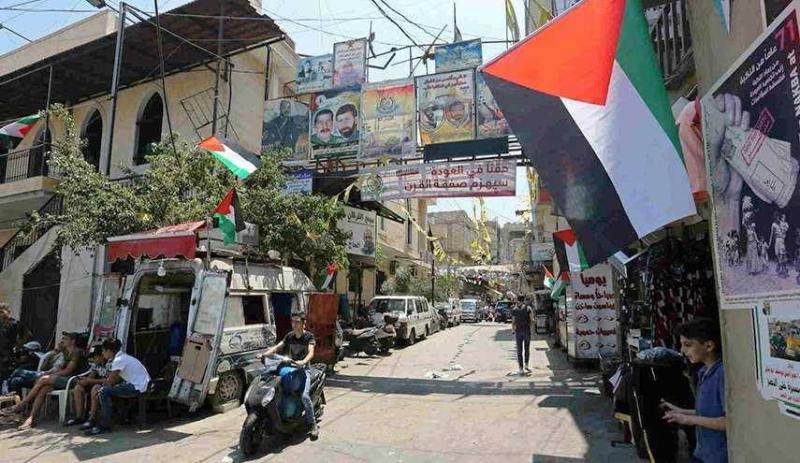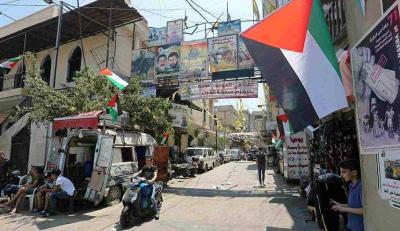At the end of this month, UNRWA will suspend its services in Lebanon for nearly 240,000 Palestinian refugees. This decision has significant political and economic implications for Lebanon, but also security ramifications. The American stance, echoed by Western countries funding UNRWA, suggests a dangerous motive: there are entities wishing to close the file on Palestinian refugees. Amid discussions of an upcoming settlement in the region, this decision appears to be part of an effort to close the file, implying that this settlement will not include all those residing outside Palestine, leaving them as refugees in their host countries and negating their right of return, as noted in "Nidaa Al-Watan."
It is not coincidental that this politically motivated decision has emerged; the issue is not merely one of budgetary difficulties for the countries involved. Rather, it underscores fears regarding the preparation of a project under the guise of a settlement that excludes the right of return, which poses a grave threat to the displaced Palestinian people and to host countries like Lebanon, which can no longer bear further influx and migration.
The agency, established under UN Security Council Resolutions 181 and 194—which affirm the right of Palestinians to return to their homes—signals with this decision that this right may now be a thing of the past, paving the way for host countries to resettle Palestinians as an unavoidable reality. The impact of this decision on Lebanon is expected to be profound. The country, already burdened by successive economic and living crises, cannot bear additional burdens of continuing to host Palestinian refugees, not to mention the uncountable numbers of displaced Syrians.
Due to UNRWA's decision and its far-reaching implications, along with the continued Syrian influx, Lebanon is at risk of significant demographic change, especially amid the large emigration of its citizens from their homeland. Is Lebanon expected to serve as an alternative homeland for all these individuals? What will happen if efforts to persuade concerned countries to exempt Lebanon from this decision fail?
Basil Hasan, head of the Lebanese-Palestinian dialogue committee, warns of the repercussions of the decision to halt UN assistance for Lebanon. He notes that the agency's annual budget in Lebanon is $200 million, used to pay the salaries of 500 government employees, fund 61 educational institutions catering to 37,000 students, and operate 155 clinics in the refugee camps, in addition to some hospitals. Without the required funding, all these institutions will shut down, leaving their employees without jobs or livelihoods.
Stakeholders in the matter, according to "Nidaa Al-Watan," assert that stopping funding could have catastrophic social consequences, transforming the camps into poverty-stricken areas where Palestinian refugees might resort to various means for sustenance, potentially making extremist or armed groups their only refuge for securing their livelihoods, thus increasing their presence in the camps. Furthermore, this could spark confrontations between Palestinians and Lebanese security forces if Palestinians engage in protest movements or similar actions.
Hasan reveals that recent meetings were held between representatives of Palestinian organizations and the Lebanese government to discuss ways to mitigate the impact of this decision on the ground and to take measures to prevent clashes between the army and the Palestinians. Moreover, the state has made a series of contacts to urge concerned countries to exempt Lebanon from the decision, with indications that, according to Hasan, the decision may be applied in Gaza while exempting host countries.
Hasan fears that the government will find itself unable to address the crisis caused by UNRWA's decision, particularly regarding its economic and social consequences. However, he does not find justification for this decision to lead to resettlement, as Palestinians themselves reject integration into Lebanese society and still insist on their right to return to Palestine, with their dream remaining alive. He hopes that efforts will succeed in limiting the decision's application to Gaza and exempting Lebanon from its consequences.
The interpretations of UNRWA's service suspension vary, but the real objective that active nations are pursuing is to maintain fragile numerical balances on Palestinian soil and exert pressure to resettle Palestinians outside it through financial and political power. As long as the idea of peace or settlements is based on undermining one of the Palestinians' rights—the right of return—it signifies a settlement built on injustice that will breed resentment and establish new conflicts, placing Lebanon before a new dilemma that threatens its social security.




